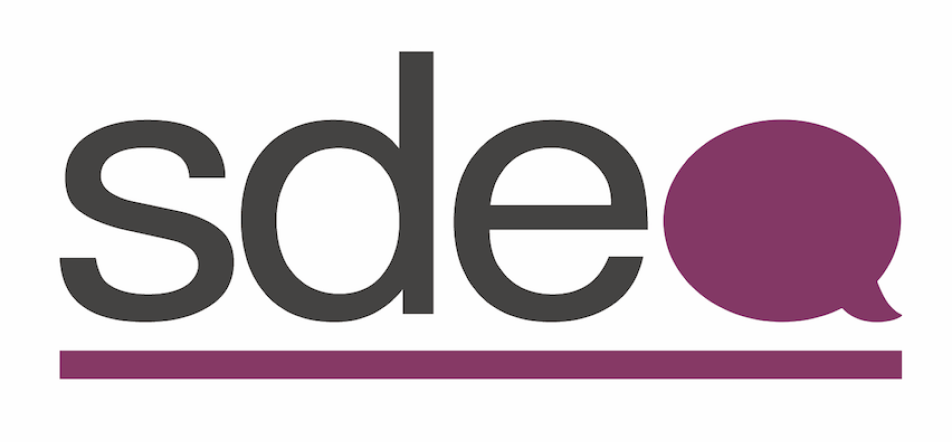SDEA Spotlight: Ghazali Muzakir
by SDEA
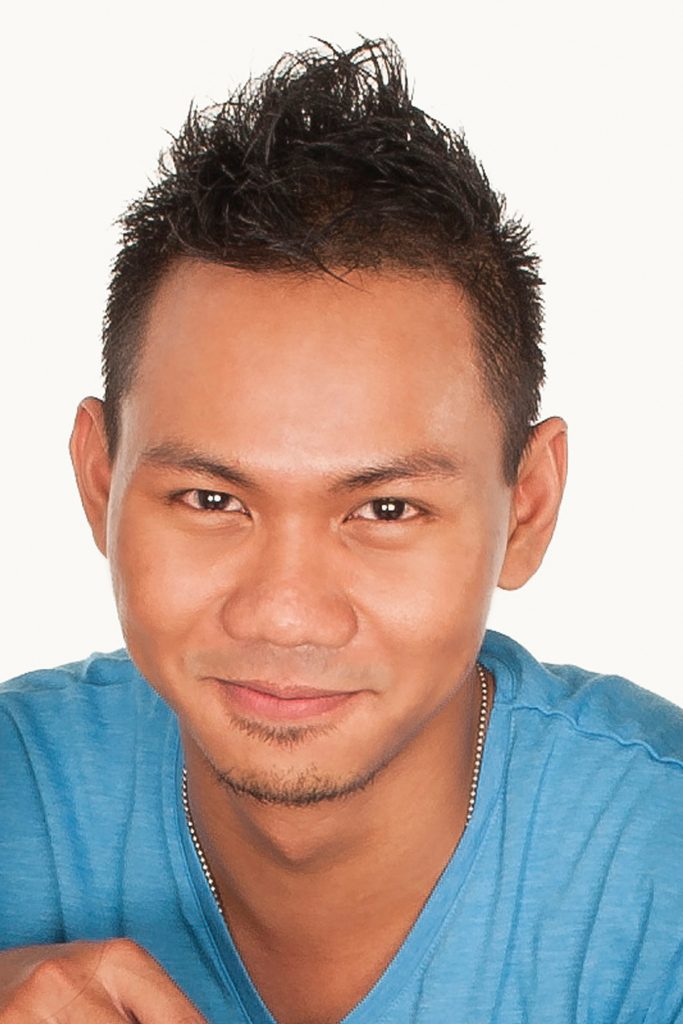
SDEA Spotlight is a series of short interviews with SDEA members that peel back the curtain behind their practice, their beliefs about arts and drama education and their influences.
Ghazali Muzakir is a drama educator, actor, playbacker and a certified medical clown.
1. What are you working on at the moment? At the moment, I am working with a few companies as a drama educator. At NAFA School of Young Talents' Junior Drama, I have just concluded the term working on improvisation. With Faust International Youth Theatre, we have recently launched brand new drama CCA programmes at the Australian International School's Early Learning Village. I am excited to be crafting and exploring new approaches to teaching drama for the young ones there.
I am also actively practising Playback Theatre with a group called "3 Cups of Kopi". We have been training for more than 9 months now and am currently working towards a show in October. Also in October, I will be collaborating with Tapestry Playback Theatre for another Playback Theatre event for the Singapore Kindness Movement.
As an actor, I am currently touring with theVoice Productions to schools and public libraries as Captain Drug Buster. It is a commissioned work by the Central Narcotics Bureau (CNB) to educate young people about the dangers of drug abuse as well as ways they can protect themselves from being victims of drug peddlers.
I am also working on a piece of theatre for children. I will be writing, directing and acting in a show called "Billie & The Big Book" for "Octoburst!", a children's festival at the Esplanade. The show will run from 6-8 October 2017 from 7.30pm to 8.00pm at the Esplanade Outdoor Theatre.
Some days, I render my services as a certified medical clown to create and provide therapeutic humour to patients in local hospitals. I have been a medical clown with Clown Doctors Singapore Ltd since 2014.
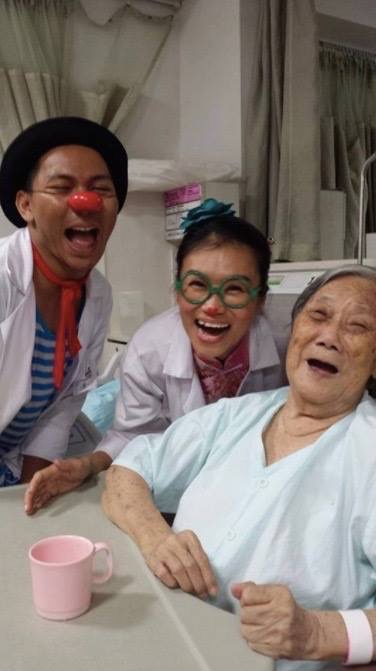 2. What's the direction of your work? Has it changed over the years?
2. What's the direction of your work? Has it changed over the years?
The direction of my work changes depending on the purpose of the work and the targeted audience. I have been fortunate enough to have worked with many theatre practitioners who exposed me to a variety of theatre forms. Even today I am still learning and discovering new things about this craft. I would say that my work is constantly evolving. However, I must say that recently my works are mostly influenced by the Aesthetic of the Oppressed, Playback Theatre, clowning and the wonderful imagination of my preschool students.
3. What is a dream project that you hope to do?
I have been wanting to start a network of community artists who can initiate/engage/facilitate dialogues with the community using the arts. Specifically, as a Malay Language speaker, I have been wanting to serve the Malay-speaking community as a kuringa (a term borrowed from Theatre of the Oppressed), which refers to an artist with a pedagogical function.
4. How did you start out doing what you do?
My foray into theatre started with BUDS Youth Theatre Company in 2005 doing mainly backstage roles while participating in workshops led by Claire Devine. It was only later that I discovered that I had a passion and talent for acting when I was asked to stand in for some actors during rehearsals. Eventually, I garnered a role in some productions with BUDS and that gave me the confidence to audition and landed a spot in young & W!LD, an actor training company created by W!LD RICE. I would not be doing what I do today if not for the confidence and trust of the directors and teachers who believed in what I can offer.
As for teaching, I started out as a relief drama teacher and discovered how much I enjoyed teaching. I later joined The Learning Connections in 2011 as a drama educator for the early childhood sector.
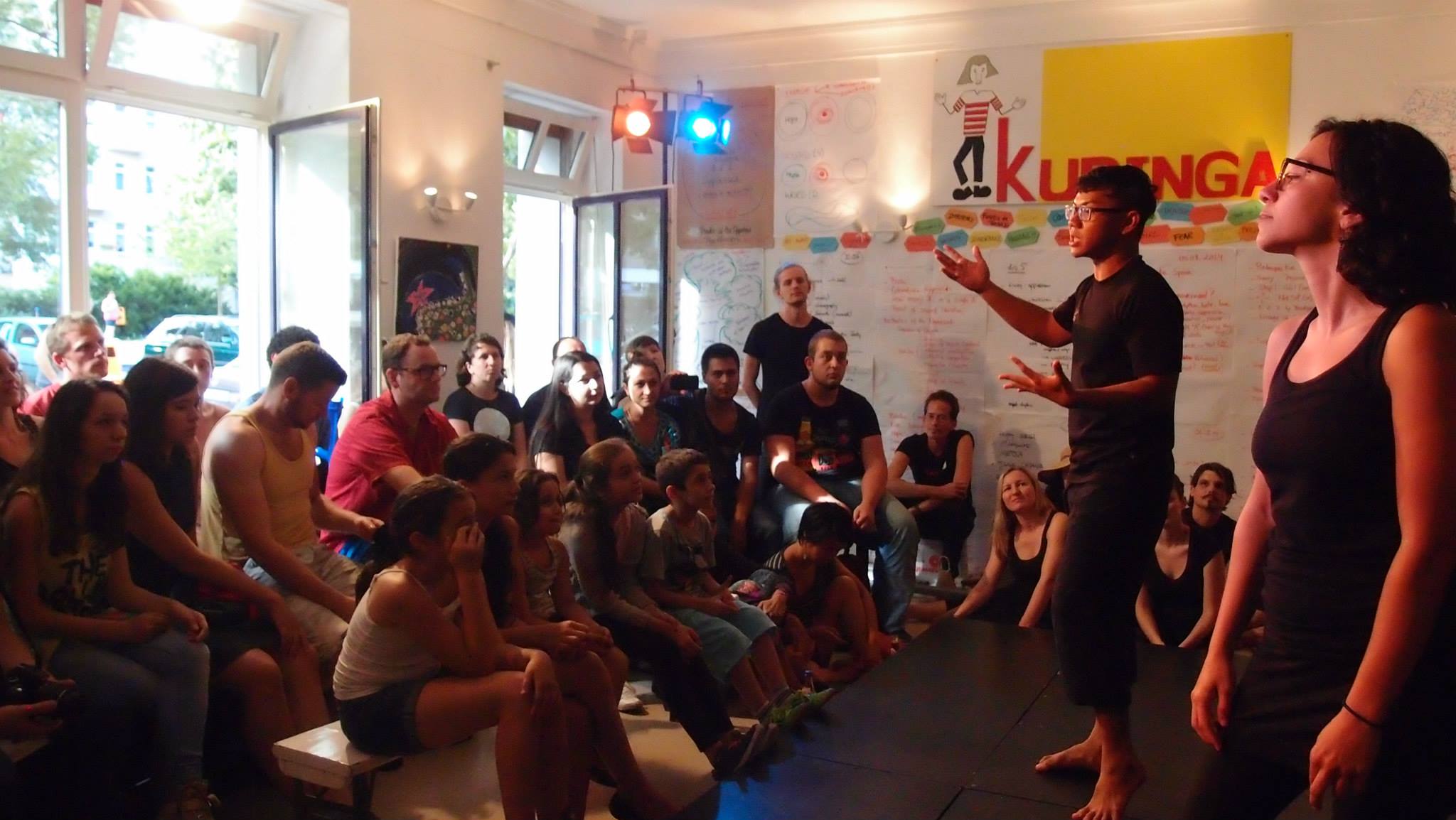 5. How do you keep your work fresh?
5. How do you keep your work fresh?
I have not stopped learning and I hope that I will never stop. I try to attend workshops whenever I can and keep myself updated with the works of other arts practitioners.
6. What do you think makes a perfect drama educator?
I don't know if it is possible to be perfect. The mentors and teachers who made a great impact and inspired me were the ones who are also constantly learning. They are the ones who have instilled this love for learning in me. I hope that I too can pass on this passion and love for learning to my students.
7. Why is drama important? Why should it be taught in schools?
In drama, we study characters and narratives. Understanding characters and how they think/feel help us to understand how we think/feel and how others think/feel. The classic narratives are filled with struggles and characters overcoming obstacles. Many times, my students have shared how they recognise or identify with some of these characters. That usually open up the space for them to talk about their own struggles and how they can control their own narratives in their lives.
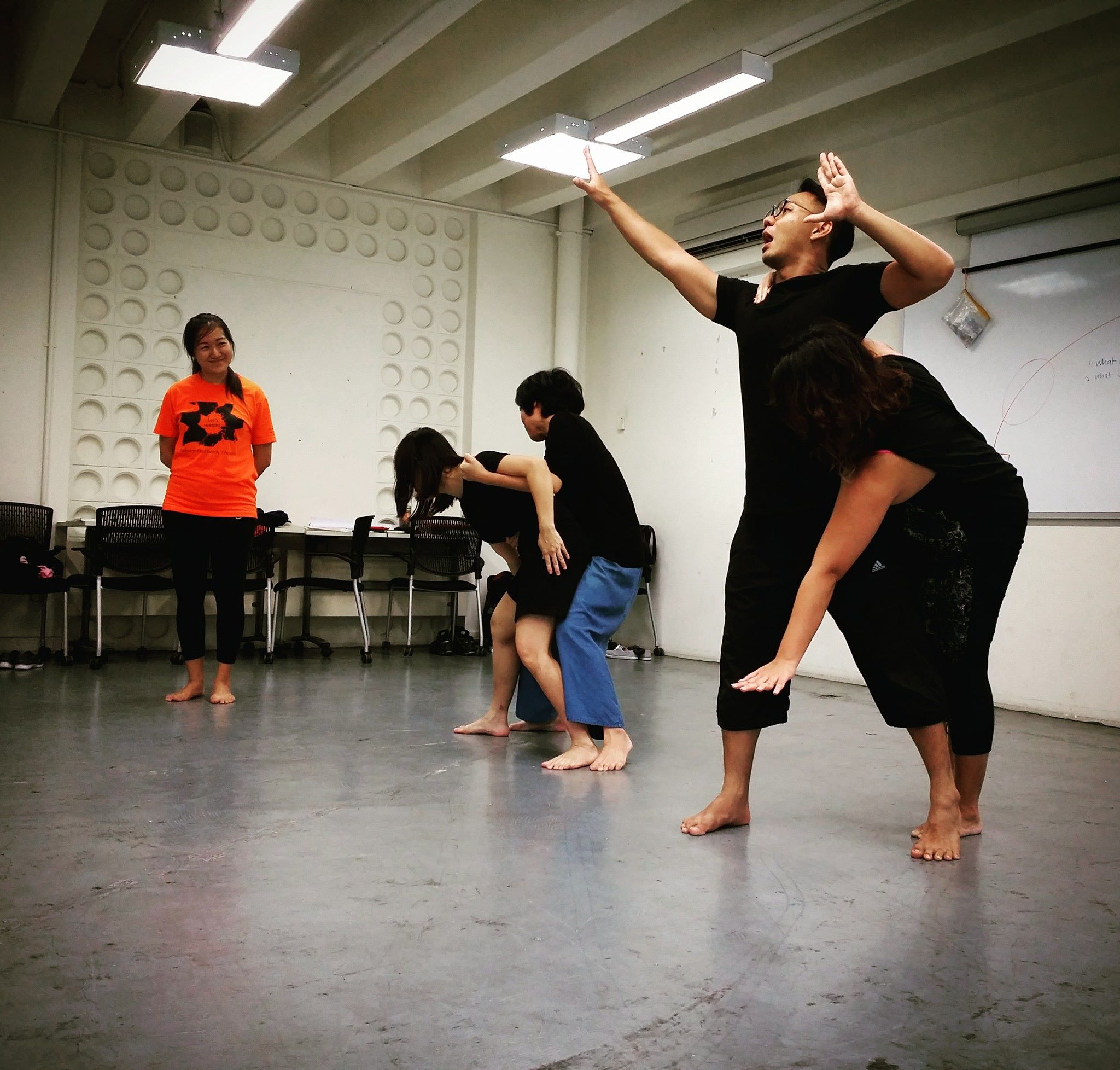
8. Who was the drama educator that has the most impact on you?
I don't think I can mention only one because there has been many great teachers in my life. Jonathan Lim taught me to be disciplined with texts; Kuo Jian Hong and Nelson Chia taught me to be disciplined with my body; Christina Sergeant taught me how to balance physicality, emotions and texts; Barbara Santos, Michael Cheng and Kok Heng Leun showed me that theatre can also be applied in many other meaningful ways; Dr Thomas Petschner and Michael Christensen helped me discover my inner clown and reconnect with my kid spirit.
9. What is your most memorable moment in the classroom/on stage?
I am always impressed by the wisdom shown by some of my preschool students. Once, my class was exploring the story of the "Monkey and the Weasel", two friends who love to play tricks on each other. Monkey loves to chase Weasel and Weasel loves to surprise Monkey by going "Pop!".
I was teacher-in-role as Weasel and told the students to hide so that they could help me scare Monkey (also played by me). A student stopped my plans and began to lecture me on the importance of playing nice with each other. They even taught Weasel friendly activities that they could do instead. I don't remember doing any teaching that day because the students were doing it for me.
10. Share a drama activity that you love to do.
I love role-playing with my very young students. Just today, we have been to the moon and back, helped a star find its home, braved through volcanoes, got turned into tiny people and got ourselves stuck in strawberry jam.
11. What do you hope to see in Singapore's drama/theatre landscape in future?
I hope that drama/theatre would have a more significant place in our culture, just as much as how we go to the movies and eat suppers. I pray for the day that I don't have to answer questions about the importance of drama/theatre and justify its need because the people of Singapore would have already believed in its significance and value.
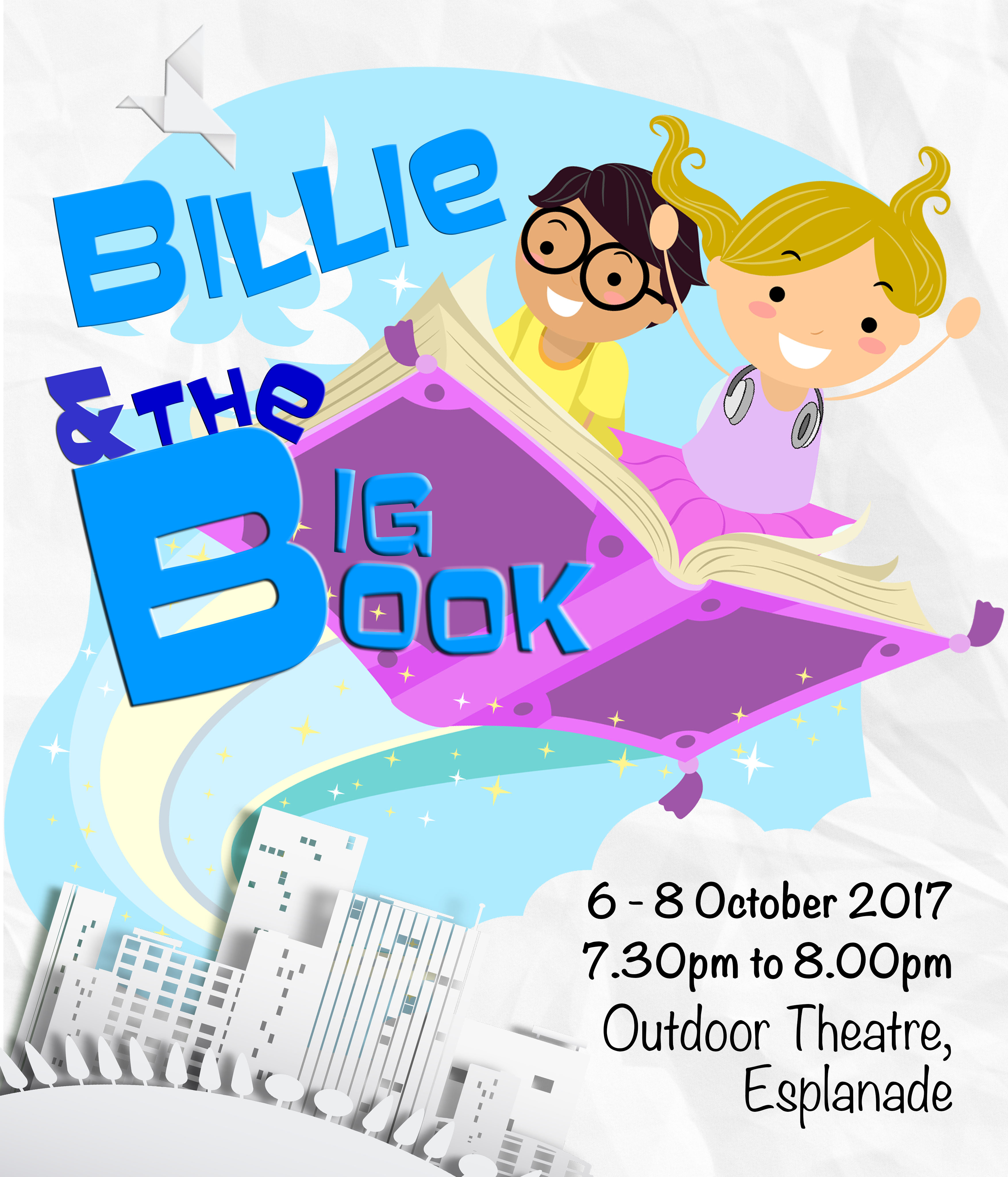
Don't miss Ghazali at the performance of "Billie & The Big Book" showing at the Esplanade's children festival Octoburst! this October. The show will run from 6-8 October 2017 from 7.30pm to 8.00pm at the Esplanade Outdoor Theatre.
